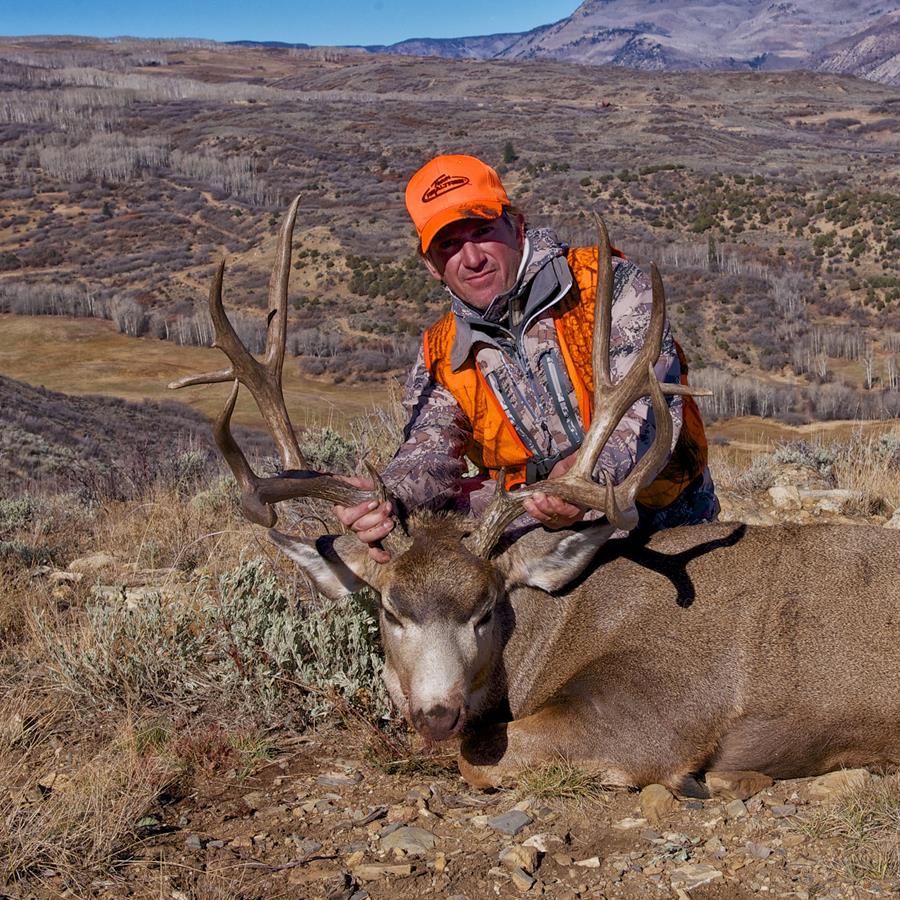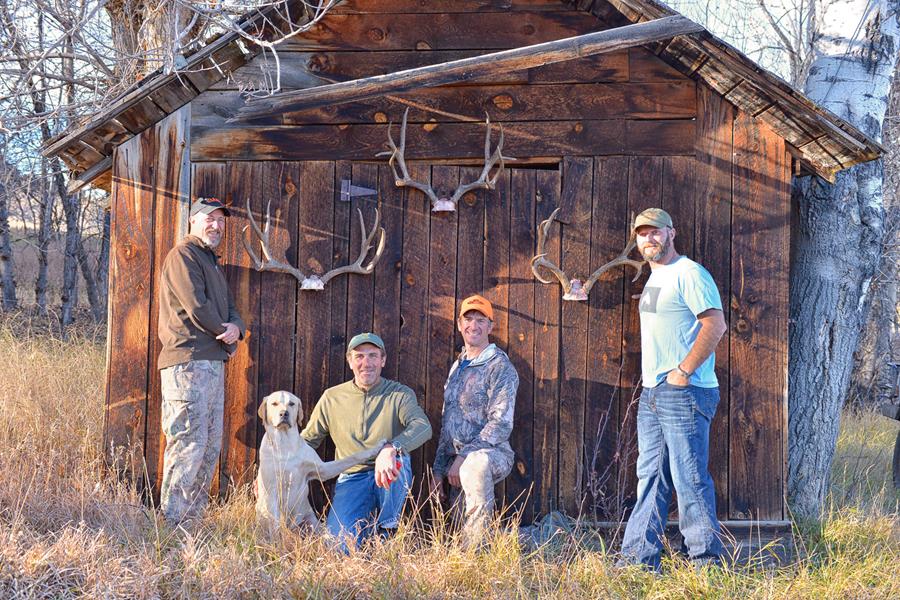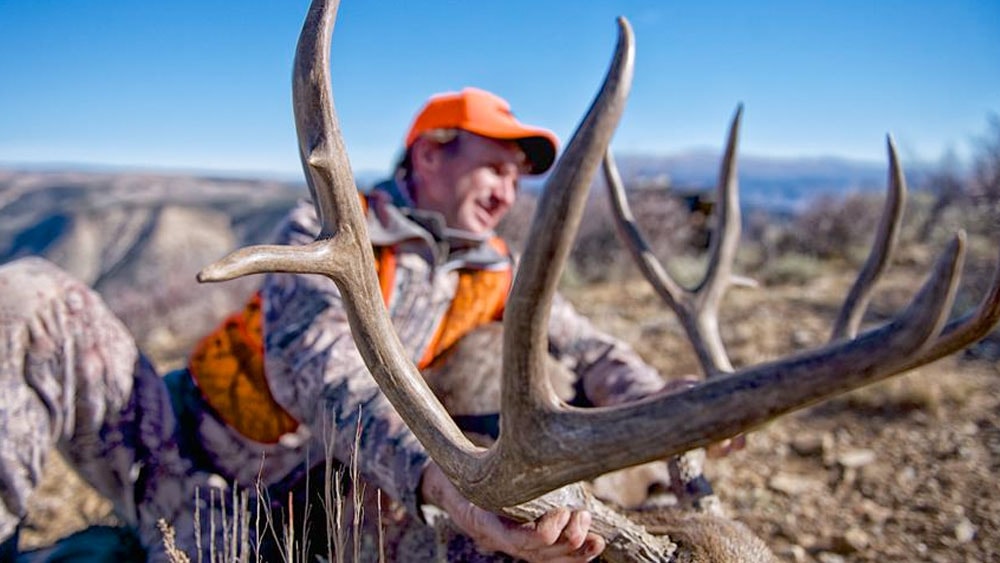If you do your homework it is relatively easy to find a great guide that ultimately turns into a lifelong friend. Rich Birdsell is that guide for me, and I have called him many times about my own unguided hunts to go over the scenarios and shots that presented themselves to make sure I was doing things the right way. Rich is a great mentor and guide. So to be along as a friend on his Colorado mule deer hunt was one of my finest hunting experiences. Not because the shot was dramatic or the conditions were insurmountable, but because Rich has guided so many others on their dream hunts, so to be there when he finally got that big “slobberknocker” he had always wanted meant a lot.
Don’t get me wrong--I hunted too, and I was lucky enough to take my biggest mule deer ever, as was Rob Braig, who took his best-ever buck the night before I shot mine. With two bucks on the ground, we had several days with only Rich’s tag to fill.
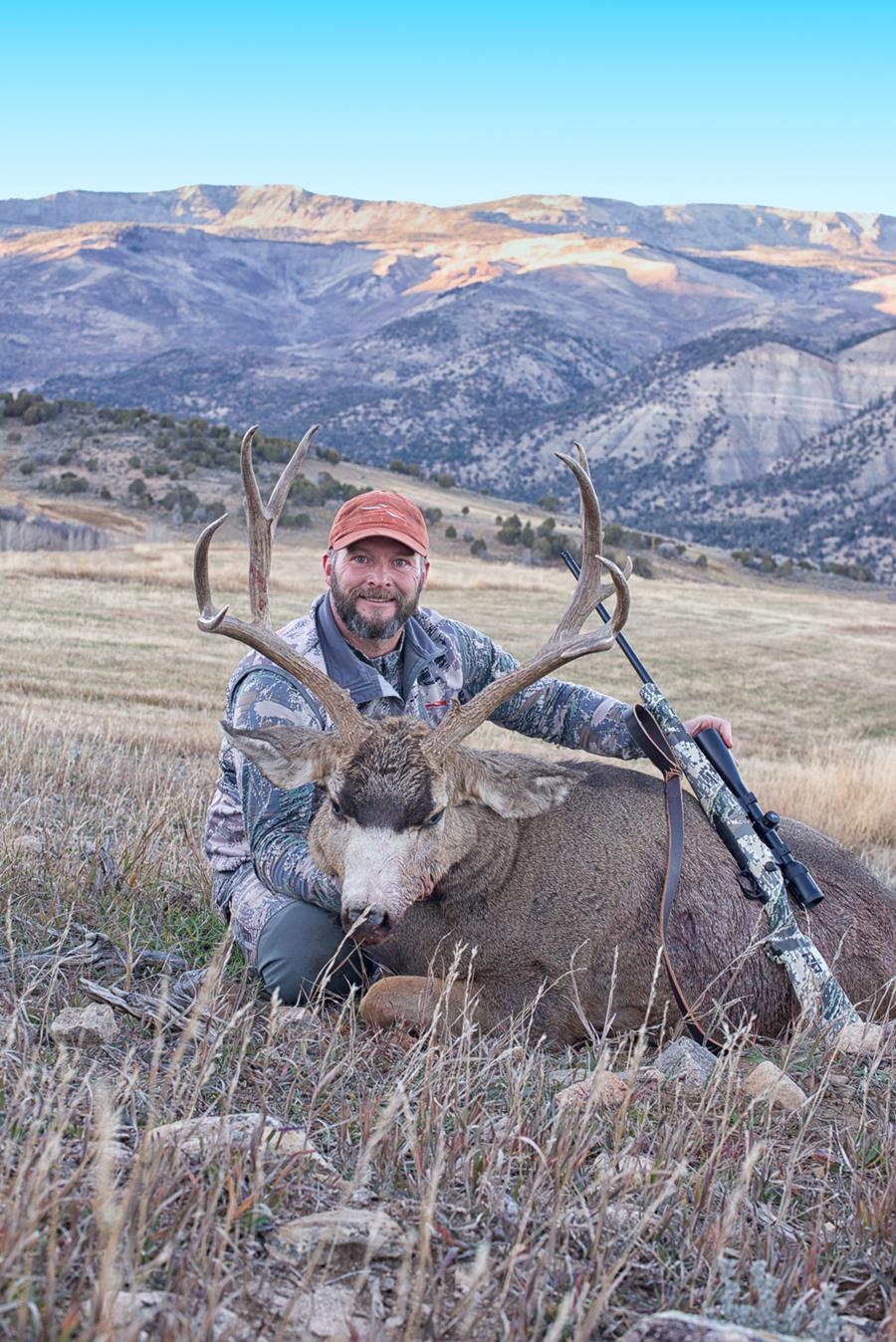
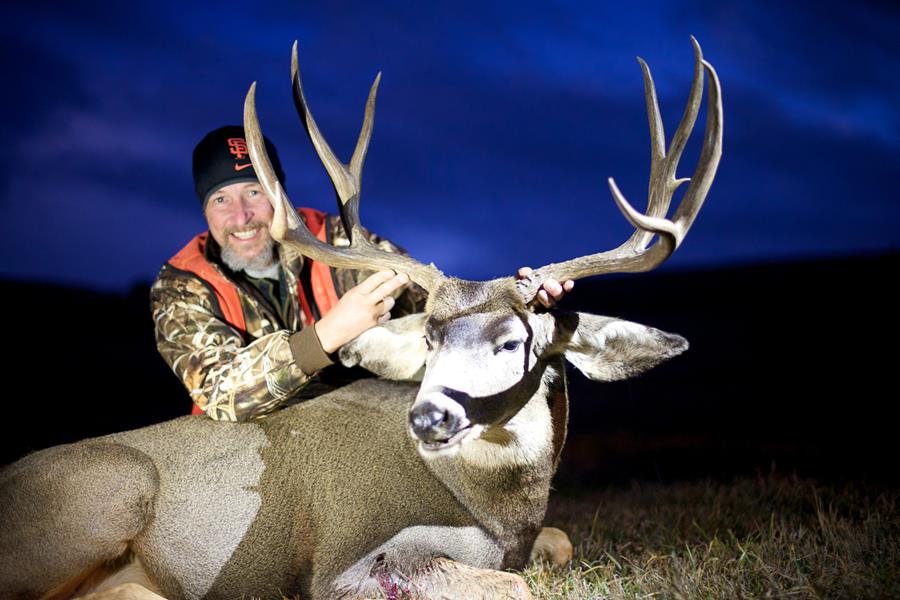
Rich loves big deer, and loves to see hunters shoot them. As long as the hunter is happy, Rich is happy. But for himself, Rich is extremely selective.
Rich wasn’t feeling well during the hunt, so we all pitched in and split up to cover more ground to find Rich a quality buck to match his standards. After putting on a few miles and turning up nothing, I pushed to a ridgeline and glassed to find a great looking, heavy deer bedded in some timber at the top. I snapped a fuzzy, motion-blurred photo of him through the scope and hustled back to the cabin, where Rich quickly committed to going in after this buck.
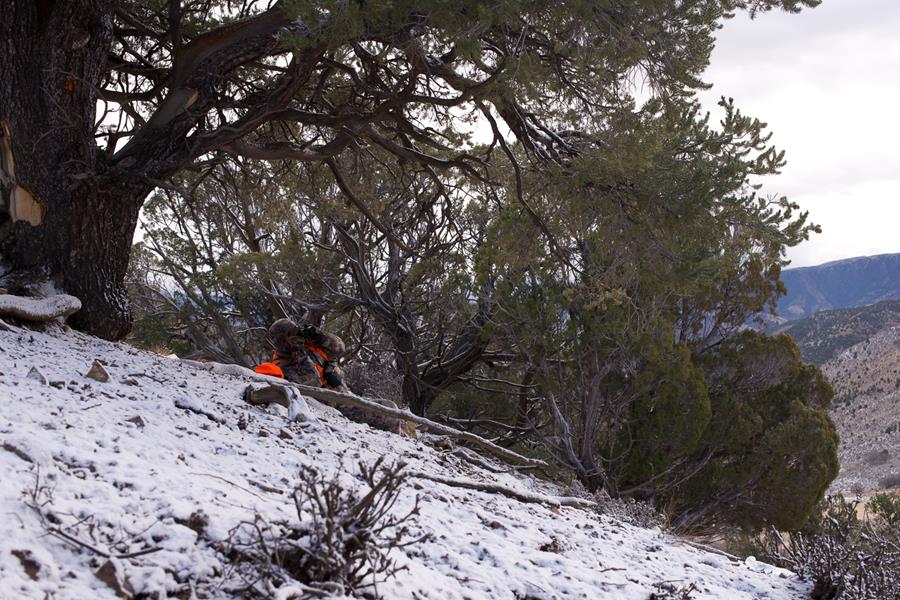
The alarm went off, and the four of us headed for the ridge. Five minutes later we spotted the bruiser about 1,300 yards away. Picky Rich said, “I can’t find anything wrong with him,” and the stalk was on. Rich put the shot where it needed to be and the buck went down. Rich had his big buck.
Being there was incredibly rewarding. It was awesome to see Rich work, and to watch him go through all the same emotions the rest of us do. Watching a mentor and friend practice his craft is really something I have a hard time putting to words. I was proud. And humbled. And smug. Of all the hunts he has been on with so many other great hunters, it was me who was there when he shot his finest buck.
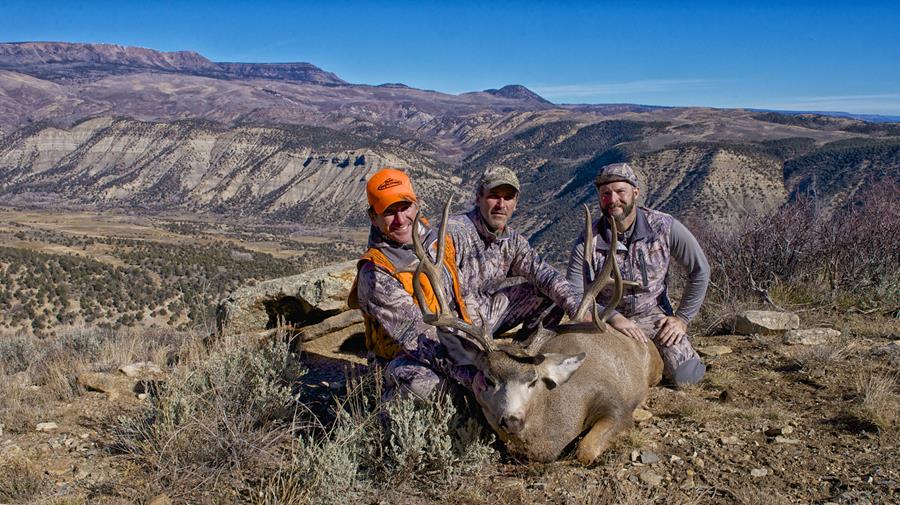
Rich is a terrific guide, and he wears a lot of hats: teacher, motivational speaker, medic, gear expert, photographer, voice of reason, navigator, wildlife behaviorist, and so many others. Certainly not all guides are equal, but there are many out there with similar qualities.
It’s just that trying to find one can be rather difficult. Plenty of resources out there tell you to look at their websites, check with the Department of Wildlife, and inquire about references. Those are good starting points. But I have found websites can be deceiving, governmental agencies can be reluctant to give detailed information, and guide-listed references never have bad things to say.
For me, I like to talk with a new potential guide as much as possible. If I can do so face-to-face, that is ideal, since things get lost in translation on the phone or email, and it’s tough to get a feel for personalities. Even in-person conversations can be strained if they take place at a trade show or in a more formal setting.
But how do you talk to a guide to get the information you need? Initially, it might just be an awkward back-and-forth about general hunt stuff – horses or backpacking, sleeping arrangements, units, etc. If the information from that exchange suits you, start asking questions of the guide that focus on the particular experience he provides, and see if this is someone with whom you’d like to cultivate a relationship. If you are looking for the cheapest hunt, your conversation will probably end at price. But if you have additional expectations or desires, getting to know the guide is critical.
Here are a few things to keep in mind:
1. Have a clear understanding about what you want to get out of the hunt and your expectations, and gear your questions around discovering whether this guide will fulfill those expectations.
2. Get a sense of their general hunting ethics and make sure they match your own. This can be tough, but asking questions about conservation-related practices will give you a good idea of how well the two of you will match up in the field.
3. Remember that you are interviewing the guide, not vice versa. So the more you talk about yourself, beating your chest about hunts you’ve been on and your abilities, the more of your time you’re wasting. Not only that, but you’re showing your cards, opening up the guide to just give you the answers he thinks you want to hear.
4. Try to get a feel for their definition of “a successful hunt.” My experience is that a great guide will define a successful hunt as one where the hunter is satisfied. Not a hunt where a giant was killed or a lot of money was made, but one where the hunter would gladly do it all over again regardless of the outcome.
5. Make sure you ask questions about cancellation policies and flexibility on hunt dates. Doing so will help you better understand how things will work should an issue arise, but the response you get on the guide’s policy will also tell you a lot about how you will be treated as a hunter and a person. The best guides are always willing to work with hunters to pull a hunt together, and seeing just how far a guide will go says a lot about them.
6. The whole point is to make sure the two of you “click” and that you won’t be disappointed down the road. Usually you can get a good feel for how the relationship will go after a couple of phone calls or in-person conversations.
